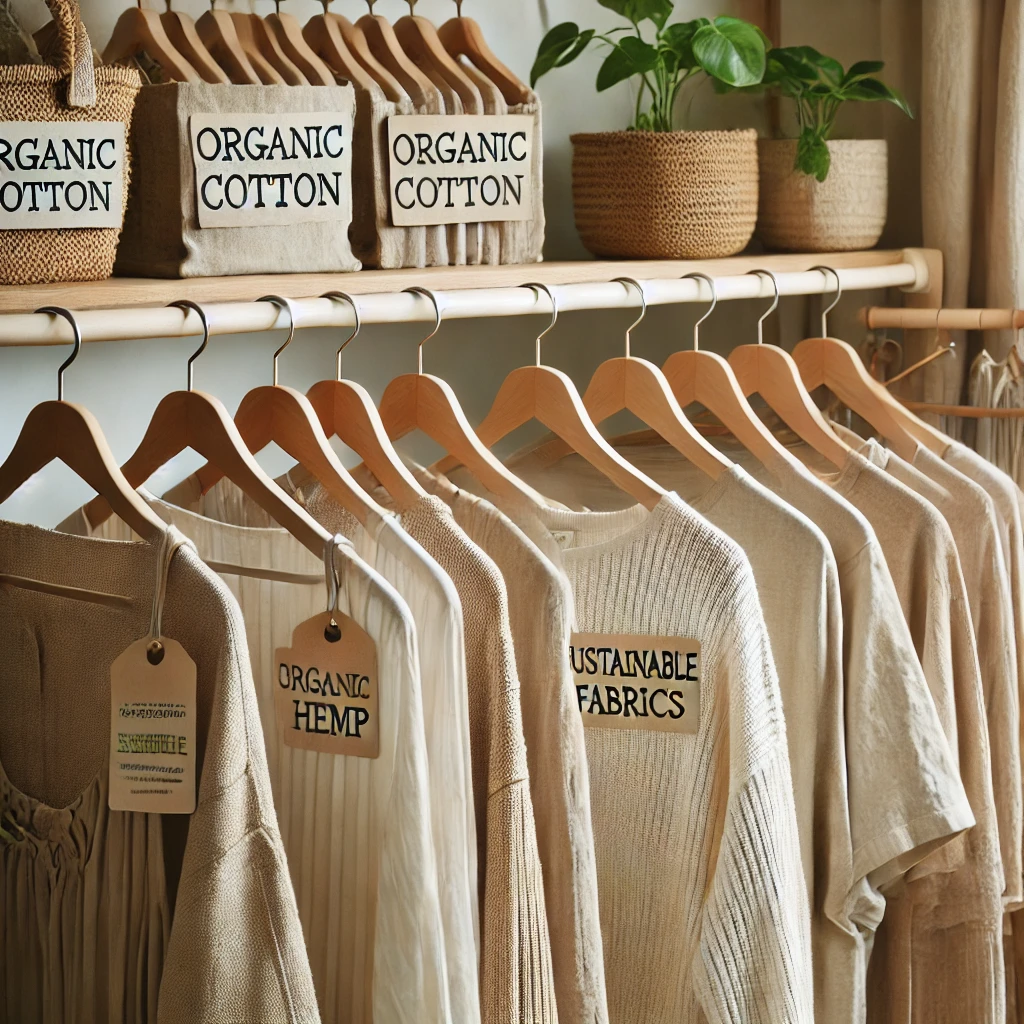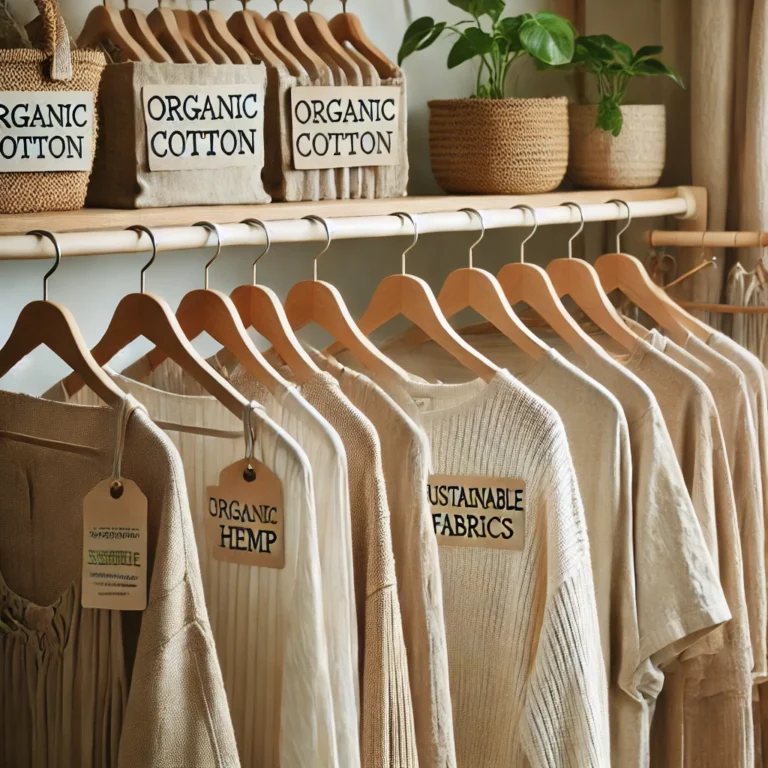Physical Address
304 North Cardinal St.
Dorchester Center, MA 02124
Physical Address
304 North Cardinal St.
Dorchester Center, MA 02124


Have you ever thought about the impact your clothing has on the environment? Choosing sustainable fabrics is one of the simplest yet most impactful ways to make your wardrobe eco-friendly. Whether you’re shopping for new clothes or looking to understand more about ethical fashion, this guide will help you navigate sustainable fabrics and make informed, eco-friendly choices. Let’s explore how to build a closet that’s kinder to the planet.
The fashion industry is one of the largest polluters, and much of this impact comes from the materials used in clothing production. Conventional fabrics like polyester and conventional cotton require large amounts of water, chemicals, and energy, which can lead to pollution and waste. According to the World Wildlife Fund, producing a single cotton shirt uses approximately 2,700 liters of water.
By choosing sustainable fabrics, you’re reducing environmental harm, supporting ethical production practices, and promoting a more responsible fashion industry. Sustainable fabrics are often made from renewable resources, produced with less water and energy, and are biodegradable. Whether you’re in a bustling city or a remote village, the fabrics you choose can make a big difference.
Organic cotton is grown without harmful pesticides and uses less water than conventional cotton. It’s a comfortable, breathable material that’s perfect for everyday wear. Look for certified organic options to ensure ethical production standards.
Hemp is one of the most sustainable fabrics available. It requires minimal water, grows quickly, and naturally regenerates the soil. Plus, hemp fabric is durable and becomes softer with each wash, making it a great option for clothing and accessories.
Linen is made from the flax plant, which requires little water and pesticides to grow. Linen fabric is biodegradable, strong, and breathable, making it a popular choice for warm-weather clothing. Its natural texture and durability make it both stylish and sustainable.
Tencel is a fabric made from sustainably harvested wood pulp, usually from eucalyptus, beech, or spruce trees. The production process is closed-loop, meaning chemicals are reused, making it an eco-friendly option. Tencel is soft, durable, and versatile, suitable for various clothing types.
While polyester itself isn’t eco-friendly, recycled polyester is a more sustainable alternative. Made from recycled plastic bottles and textile waste, it reduces the need for virgin materials. Recycled polyester is commonly used in sportswear and outerwear, providing durability with a lower environmental impact.
For a more comprehensive overview of sustainable fabrics, check out this guide by Sustainable Jungle.
When choosing sustainable fabrics, there are a few key factors to consider. Here’s a quick guide to help you make informed choices:
Look for fabrics certified by reputable organizations like GOTS (Global Organic Textile Standard) for organic cotton, OEKO-TEX for safe textiles, and the FSC (Forest Stewardship Council) for wood-based fabrics like Tencel. These certifications ensure that the materials are sustainably sourced and produced without harmful chemicals.
Consider how the fabric is made. Some materials, like Tencel, use eco-friendly, closed-loop production processes that minimize waste and pollution. This is a great indicator of a brand’s commitment to sustainable practices.
Choosing durable fabrics means your clothing will last longer, reducing the need for frequent replacements. Take note of care instructions to ensure you’re maintaining the quality of sustainable fabrics, as proper care extends their lifespan and reduces waste.
When in doubt, ask the brand about their materials and production process. Many ethical fashion brands are transparent about their supply chain, so don’t hesitate to reach out for more information.
Lily, a college student from Canada, made a conscious decision to shift to sustainable fabrics after learning about the environmental impact of fast fashion. She started small, choosing organic cotton tees and Tencel dresses. Over time, she noticed that her clothing choices not only helped the planet but also made her feel more connected to her wardrobe. She now focuses on quality over quantity, and her minimalist wardrobe feels more personalized and aligned with her values.
Stories like Lily’s show us that sustainable fabrics aren’t just about the environment; they’re also about fostering a deeper connection with what we wear. At EcoTipsEveryday, we believe that every choice adds up and makes a positive difference.
Choosing sustainable fabrics is an impactful way to reduce your environmental footprint and support ethical fashion. From organic cotton to recycled polyester, there are so many options that fit a variety of styles and needs. By prioritizing sustainable fabrics, we’re not just investing in quality clothing but also in a healthier planet.
Question for You:
Have you tried incorporating sustainable fabrics into your wardrobe? What are your favorite eco-friendly materials? Share your thoughts in the comments, and let us know if you have any other tips on sustainable fashion.
Let’s make a difference together by choosing clothing that aligns with our values. Small steps, like opting for eco-friendly fabrics, can lead to a more sustainable world—one outfit at a time.
Meta Description
“Learn how to choose sustainable fabrics and build an eco-friendly wardrobe with ethical fashion tips. Discover the best fabrics for the planet!”